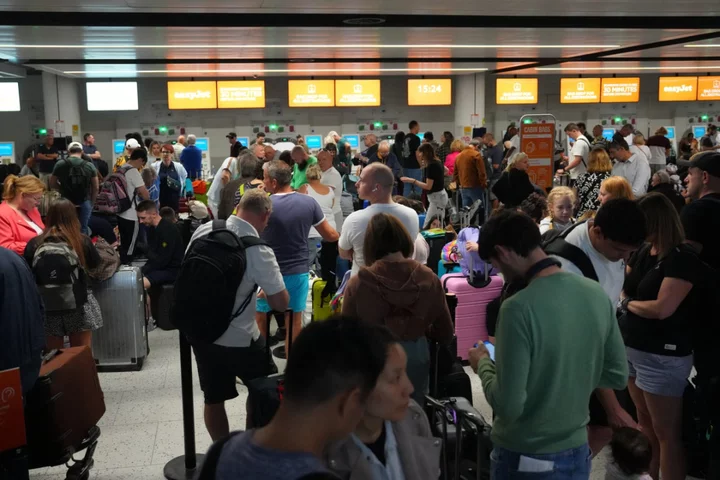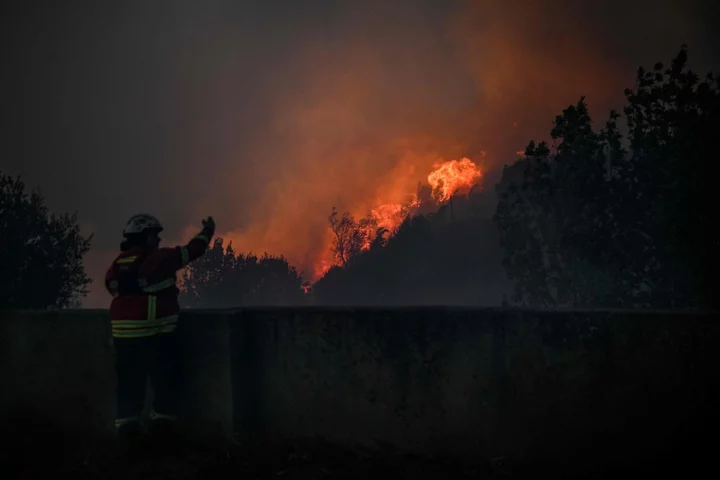
Iceland earthquakes: What are your rights if you are on holiday or are planning to go?
The earth is at its most restless in Iceland right now. The Reykjanes peninsula, southwest of Reykjavik, is seething with seismic activity sparking hundreds of small earthquakes. The town of Grindavík, just 10 miles south of Keflavik International Airport, has been evacuated as a precaution. Yet flights are continuing to arrive and depart as normal. These are the key questions and answers on consumer rights. I am in Iceland. Will I be able to leave? Yes, assuming the international airport remains open. So far operations have been normal. There are 14 arrivals and departures planned for Saturday from and to the UK, with no signs of disruption to flights. You may be keen to leave earlier than booked, in order to guarantee your getaway, but at present you will not be able to switch flights without paying a penalty. A spokesperson for British Airways told The Independent: “Our flights are operating as planned and we continue to monitor the situation closely. “We will be in touch with customers directly should the situation change.” The easyJet statement is very similar: “Our flying schedule is currently operating as normal however we are monitoring the situation closely and should this change we will contact customers directly to advise on their flights.” But didn’t an Icelandic volcano shut down European aviation for a week? Yes. Travellers may remember where they were March 2010, when the Icelandic volcano Eyjafjallajökull erupted. The skies of northern Europe completely closed to passenger aviation for almost a week because of fears that volcanic ash spreading southeast from Iceland could damage aircraft engines and endanger travellers. More than 50,000 flights, with eight million passengers booked to travel, were cancelled. So far in 2023, though, ash has not been an issue in the current geological outburst. What if I am booked on a package holiday? Foreign Office advice stops well short of advising against travel to Iceland, meaning holiday companies can continue to operate as normal – with no automatic right to cancel. The Foreign Office advice to British travellers is that it is “increasingly possible” that a volcanic eruption could occur. The official warning on “volcanic eruption and earthquakes” reads: “Earthquakes and indications of volcanic activity have increased above normal levels on the Reykjanes peninsula, southwest of Reykjavik. “The Icelandic authorities continue to monitor the area closely, particularly the area northwest of Mt Thorbjörn near the Svartsengi power plant and the Blue Lagoon. On 10 November, a Civil Protection Alert was declared after an intense swarm of earthquakes. “The town of Grindavík was evacuated as a precaution. Some roads have been closed and visitors are advised to stay away from the area. “Keflavik International Airport is operating as normal. While there is no current eruption, it is increasingly possible that one could occur.” Until and unless the Foreign Office warns against travel, the assumption is that everything will go ahead as normal. The one exception is for holidaymakers who had planned to stay at the Blue Lagoon – an increasingly popular “wellness” destination, with an upmarket hotel on the site. The Blue Lagoon is currently closed. Only those booked for a stay have the chance to cancel; if you were hoping to pop in as a day visitor for a steamy stop in the volcanic rock pools, you will need to return at some time in the future. Can I claim on insurance? No, unless it is one of the vanishingly rare “cancel for any reason” policies. On standard travel insurance, “disinclination to travel” is not an acceptable reason for a claim. Would you go to Iceland at the moment? Yes, I would relish the opportunity. Late November is an excellent time to visit Iceland for good value. Conditions right now are also excellent for the prospect of a good show to the Northern Lights, which are at a peak of the usual 11-year cosmic cycle. I also know that the Icelandic authorities are expert at handling seismic events, with extremely good monitoring and emergency systems in place. I would book a package holiday, though, knowing that if the earth gets too restless for comfort in the vicinity, I would be able to cancel for a full refund. Read More Iceland earthquakes: Your rights if you are on holiday there or are planning to go Iceland earthquakes: Are flights still running amid fears over volcano eruption? In the Superloop: London’s southbound express bus In the Superloop: London’s southbound express bus Airbnb rules go ‘step too far’ with guidance on how to clean up blood Passenger claims tequila in his luggage came back with ‘shot’ missing after flight
2023-11-12 17:16

What travelers to Morocco need to know following the recent earthquake
Following the devastating earthquake in Morocco, should travelers cancel or go ahead with their trips? Here's what to know if you're planning a trip or are due to travel imminently.
2023-09-12 00:53

EasyJet to send ‘rescue flights’ for passengers stranded by air traffic control chaos
Britain’s largest budget airline will send “rescue flights” for passengers stranded abroad by air traffic control chaos. As hundreds of flights were cancelled on Tuesday, easyJet confirmed it would operate five repatriation flights to London Gatwick over the coming days. The rescue flights will operate from Palma and Faro on 30 August, Tenerife and Enfidha on 31 August and Rhodes on 1 September. More than 1,200 flights to, from and within the UK were grounded by the failure at the national air traffic provider Nats, with around 200,000 people sleeping at airports overnight. Earlier on Tuesday, easyJet grounded more than 80 flights, including three dozen at Gatwick, including those serving popular tourist destinations such as Athens and Venice. Confirming the rescue flights, an easyJet spokesperson said: “We have been providing customers with assistance and hotel accommodation and advising anyone who has needed to make their own hotel or alternative travel arrangements that they will be reimbursed. “During this traditionally very busy week for travel, options for returning to the UK are more limited on some routes and so easyJet will be operating five repatriation flights to London Gatwick over the coming days from Palma and Faro on August 30, and Tenerife and Enfidha on Thursday August 31 and from Rhodes on Friday September 1. “We are also operating larger aircraft on key routes including Faro, Ibiza, Dalaman and Tenerife to provide some additional 700 seats this week. “Although this situation was outside of our control, we are sorry for the difficulty this has caused for our customers and remain focused on doing all possible to assist and repatriate them. Customers will be moved onto repatriation flights and notified directly.” Meanwhile, National Air Traffic Services (Nats) confirmed that the air traffic control failure was caused by flight data received by the organisation, prompting both its primary and backup systems to suspend automatic processing. His statement appeared to confirm earlier reports from sources who told The Independent that a dodgy flight plan filed by a French airline may have sparked the major systems meltdown. “Very occasionally technical issues occur that are complex and take longer to resolve. In the event of such an issue our systems are designed to isolate the problem and prioritise continued safe air traffic control”, the statement from Nats CEO Martin Rolfe read. “This is what happened yesterday. At no point was UK airspace closed but the number of flights was significantly reduced. Initial investigations into the problem show it relates to some of the flight data we received. “Our systems, both primary and the back-ups, responded by suspending automatic processing to ensure that no incorrect safety-related information could be presented to an air traffic controller or impact the rest of the air traffic system. There are no indications that this was a cyber-attack.” Read More EasyJet lays on rescue flights as ‘dodgy French flight plan’ blamed for air traffic chaos – latest More travel chaos after 300,000 hit by cancellations – and French error blamed for air traffic mayhem Ask Me Anything: Put your questions to Simon Calder as flight cancellations cause mayhem across Europe Caught in the air traffic control nightmare? Your rights when flights go wrong Everything you need to know about air traffic control failure on Tuesday Travel chaos over bank holiday weekend as BA and easyJet cancel dozens of flights Train strikes and cancelled flights spell Bank Holiday travel chaos
2023-08-30 03:57

Wildfires in Portugal: Is it safe to travel to Lisbon and Cascais right now?
As wildfires rage across Sicily and Greece, Portugal is the latest Mediterranean country to be hit. A fire broke out on 26 July near the popular coastal holiday spot of Cascais, just 30km west of capital city Lisbon. The blaze started at 5pm in part of the Sintra-Cascais natural park, with strong winds fanning the flames and quickening the spread. Local residents chipped in to help the hundreds of Portuguese firefighters sent to tackle the fires, with some attempting to protect their homes and villages with buckets of water and hosepipes. “The fear now is that it will get to the houses,” local resident Ines Figueiredo told Reuters. “We try to help as much as we can with buckets (of water) ... but it’s not worth much.” Planes were also dispatched to waterbomb the blaze before night fell, alongside more than 600 firefighters. Winds of of up to 60km/h were the biggest obstacle to putting out the fire, according to the mayor of Cascais, Carlos Carreiras. A number of local residents have been evacuated as a precaution. If you’re booked to travel to Portugal, is it still safe to go? And what are your rights if you cancel a holiday? Here’s what we know. Where is affected by the wildfires? So far, the fire is contained to Sintra-Cascais natural park; it hasn’t spread as far as the resort of Cascais, popular with holidaymakers for its beaches and vibrant marina. Some villages within the vicinity of the park have been affected, with nine firefighters and four civilians so far treated for minor injuries and some residents evacuated. Elsewhere, smaller blazes have been reported in the north and centre of Portugal, one of which is near the second city of Porto. The highest level of alert for rural fire danger has been issued for several regions, including holidaymakers’ favourite, Faro in the Algarve. Is it safe to travel to Portugal? So far, the one major blaze has yet to impact on any areas that tourists are likely to visit. Unlike the Greek island of Rhodes, where a number of holidaymakers have had to be evacuated from the worst-affected areas, Portugal’s wildfires won’t affect the overwhelming majority of visitors. The UK Foreign Office (FCDO) advice on Portugal has not been updated to reflect the latest fires; its standard advice reads: “Forest fires can occur anywhere in Portugal. Risk of fires is higher when the weather is hot and dry. Fires have become more common due to drought and high temperatures. “Forest fires are highly dangerous and unpredictable. The Portuguese authorities may evacuate areas and close roads for safety reasons. You should: familiarise yourself with local safety and emergency procedures follow the advice of the Portuguese authorities call the emergency services on 112 if you see a wildfire “Starting a forest fire, even if it is by accident, is illegal in Portugal.” No holidays to Portugal appear to have been cancelled by travel companies at this time. Can I cancel my holiday to Portugal? Cancelling a holiday to Portugal based on the currently very small risk of fire impacting the trip would very likely lead to you losing any money paid so far. While most tour operators are offering customers due to travel to fire-affected parts of Rhodes the option of cancelling and rebooking, the same is not true of Portugal, where the blaze is yet to affect tourist areas. If you’ve booked travel and accommodation separately, rebooking flights in many cases costs as much as buying a whole new ticket. Cancellation costs incurred also won’t be covered by your travel insurance in the vast majority of cases, as the FCDO has not issued an advisory against all “non-essential” travel to Portugal. Read More More than two million expected to head overseas for summer getaway despite heatwave 8 best cities and towns in Portugal to visit on your next holiday Best beaches and seaside holidays in Europe 2023 Flight attendant shares harrowing story of passenger’s road rage attack Wizz Air ordered to revisit rejected expenses claims over flight disruption Is it safe to travel to Turkey? Latest advice as wildfires spread across Europe
2023-07-28 00:58
